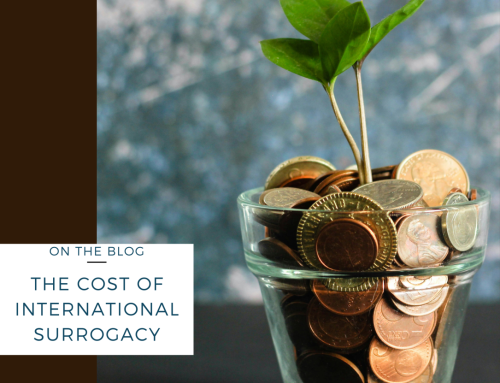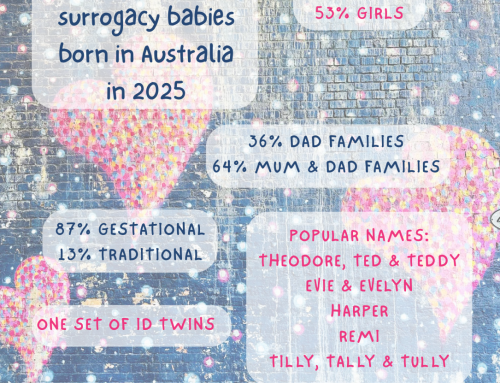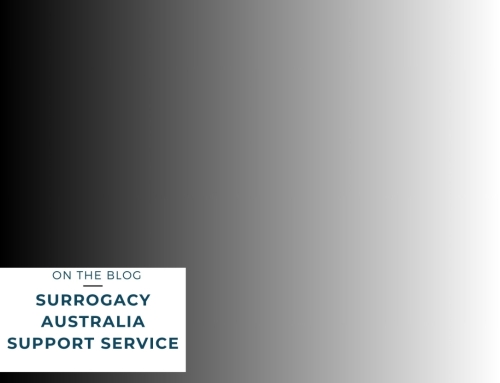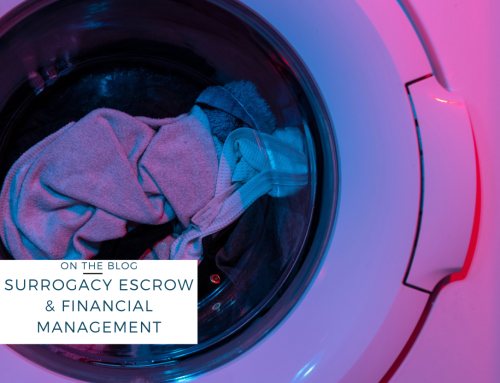Surrogacy Lawyers – huh, what are they good for? If you answered ‘absolutely nothing!’ well… fair enough. But bear with me! Read on and hopefully you’ll learn more about what surrogacy lawyers are good for, and how you can have a positive experience when getting legal advice. If you haven’t had a positive experience in the past, I’m sorry! Hopefully I can turn that frown upside down.
If you are new to surrogacy, you can read about how to find a surrogate, or how to become a surrogate yourself. You can also download the free Surrogacy Handbook which explains the processes and options.
In many aspects of law, family law included, lawyers and the parties are adversaries. Our job as lawyers is to protect our client’s interests, and sometimes that means giving advice that may not be welcome, or advocating for a position that might upset the other party.
In surrogacy, are we really adversaries? My clients really like the other parties when they enter a surrogacy arrangement. They’re embarking on an amazing, exciting, positive experience with each other. Our job as lawyers is to support the parties to understand the legal framework for surrogacy, the consequences of entering into the arrangement, and the processes involved for pre-conception and post-birth Parentage Orders. The conversations I have with clients are uplifting and positive, and I can feel the excitement and anticipation between the team even as we talk about the legal agreements and the court process. They love each other! And they’re going to make a baby together!
So, what can we expect from the legal agreement? Primarily the surrogacy agreement is a piece of evidence of what the parties’ intentions and obligations are as intended parents, surrogates or surrogate partners. The signed agreement is used as evidence for the clinic before doing an embryo transfer, and later for the court when making the Parentage Order. It is not binding, other than as it outlines the surrogate’s expenses and the intended parents’ obligation to cover them.
The greatest risk when entering an altruistic surrogacy arrangement is that the parties will suffer a breakdown in their relationships with each other. If the intended parents are worried that the surrogate will take advantage of them, or not hand over the baby, they can rest assured that the risks of those things occurring are minimal. But the risks that the parties won’t like each other are greater – if they haven’t paid enough attention to setting expectations between them, focusing on building the relationship, accessing support through counselling and other networks (like Facebook groups or the Surrogacy Sisterhood). There are real risks that the relationship will breakdown, even when the baby has been handed over to the intended parents.
If the greatest risk is not that the surrogate will keep the baby or not look after herself during pregnancy, then the lawyer’s job is not to pit the parties against each other, but to support the team to build a strong foundation for a positive journey. Much of my role is giving advice that if the parties are wanting to resolve any disputes between them, the first person to call is not the lawyer, it’s their counsellor. The legal relationship between the birth parents and the intended parents ends with the Parentage Order. I want the emotional relationship between them to last much longer than that, so anything I do as a lawyer must be to support that ongoing relationship. Surrogacy relationships are for life, not for the duration of a contract.
I am always disappointed to hear people have not had a positive experience with the legal agreement or the legal advice they’ve received, or feel that their lawyer over-serviced them and charged them a fortune beyond what is expected for a surrogacy arrangement. Often it is because there are aspects of the surrogacy agreement that pit the parties against each other, and make them question the motives and integrity of the other parties. Clauses that restrict, limit or prohibit the surrogate from behaving in a certain way, do nothing for the trust between the parties. It can be really damaging to their trust, and can feel ‘dehumanising’ and ‘driven to tears’ – these are real quotes from women I have worked with. Surrogates are doing an amazing, generous thing to carry a baby for someone else. If the agreement dictates how she must behave or provides her with a list of prohibited behaviours, her first reaction may be to think the intended parents don’t trust her. And if they don’t trust her to do the right thing by their baby, then perhaps they shouldn’t trust her to carry their baby at all.
If you are an intended parent speak to an experienced surrogacy lawyer who is not seeking to make you an adversary with your surrogate. Work through anxieties and worries in counselling, not with a restrictive surrogacy agreement that makes her feel like an incubator. She’s your friend, family, and the future birth mother to your child – she will do the right thing by you and your baby. You just need to trust her and focus on the relationship, not some unenforceable contract.
Sarah has written a book, More Than Just a Baby: A Guide to Surrogacy for Intended Parents and Surrogates, which is the only guide to surrogacy in Australia.
You can find more information in the free Surrogacy Handbook, reading articles in the Blog, by listening to more episodes of the Surrogacy Podcast. You can also book in for a consult with me below, and check out the legal services I provide.








